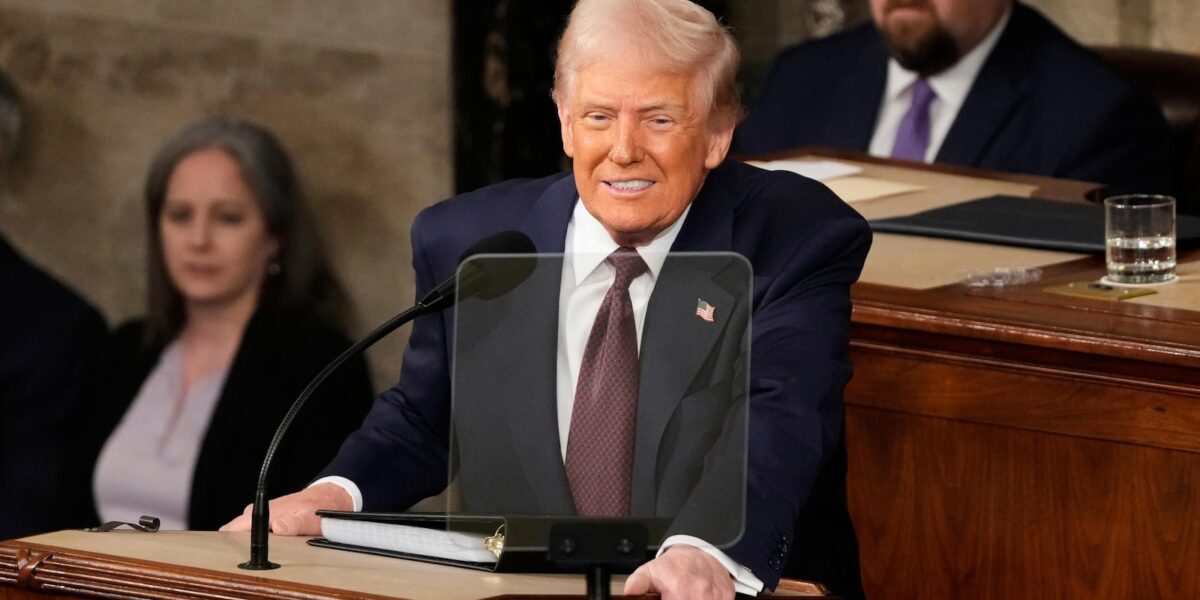DETROIT — President Donald Trump’s short reprieve for U.S. automakers from stiff tariffs on imports from Mexico and Canada isn’t likely to allow enough time for those companies to make the changes necessary to minimize the damage from Trump’s intensifying trade war.
Trump granted a one-month exemption to 25% tariffs on vehicles and auto parts traded through the North American trade agreement USMCA after speaking with leaders of automakers Ford, General Motors and Stellantis, the White House said Wednesday. Trump then broadened the exemption beyond autos for Mexico on Thursday.
In response to concerns about the short timeline for auto companies, White House Press Secretary Karoline Leavitt noted that Trump told the companies to “start investing, start moving, shift production here.”
It’s just not that simple.
Automakers “will be hit differently based on exactly where their supply chain is,” said John Paul MacDuffie, professor of management at the University of Pennsylvania. In particular, “GM and Ford have shrunk back from a formerly much more global footprint, but they still are global companies.
“Of course, if the goal is to move a lot of production to the U.S.,” he added, “I guess you could. But I don’t see those changes happening quickly.”
Automakers responded to Wednesday’s news graciously. Ford said in a company statement: “We will continue to have a healthy and candid dialogue with the Administration to help achieve a bright future for our industry and U.S. manufacturing.” Both GM and Stellantis thanked Trump for the exemption in statements.
Matt Blunt, president of the American Automotive Policy Council, which represents the three automakers, said he applauds the president “for recognizing that vehicles and parts that meet the high U.S. and regional USMCA content requirements should be exempt from these tariffs.”
But with only a monthlong grace period, automakers know challenges lie ahead.
To be sure, as automakers spent decades expanding around the world, they frequently battled supply-related woes and policy changes that hindered production — and their bottom lines.
A disaster halfway across the globe impacting one tiny component, with no easy or obvious supply alternative, can take down a vehicle’s production for weeks.
Contentious labor negotiations and work stoppages have put significant pauses on automaking for the domestic car companies.
The COVID-19 pandemic also interrupted global supply chains and sent new and used vehicle inventory to disastrous lows on dealer lots, causing prices to skyrocket.
“At least automakers have seen some version of this uncertainty,” said Hovig Tchalian, assistant professor at the University of Southern California. “I think this uncertainty is actually higher. But they’ve had some practice doing it.”
Those disruptions and others throughout the business’s history, however, have made it clear that automakers still can’t respond very quickly.
The tariff exemption is no exception, given the ever-increasing complexity of assembly lines and manufacturing. Plants can’t be moved, factories can’t be built and product lines can’t be changed overnight.
And even with this pause, steel and aluminum tariffs are still expected to go into effect on March 12. Then, on April 2, Trump is expected to set broad “reciprocal” tariffs to match the taxes and subsidies charged by other countries on imports.
Those would disrupt the automotive industry quickly and dramatically, said Sam Fiorani, an analyst at AutoForecast Solutions.
“A substantial change in automotive free trade will hurt stock prices of all automakers because their profits will take a hit and consumers will face higher prices on vehicles, further diluting sales going forward,” he said.
Not only do companies have to decide whether immediate changes in production are realistic, but if they’re unable to do that meaningfully, they might produce or sell fewer vehicles — sending new car buyers to other brands or the used market — and, ultimately, make less money.
“The uncertainty that’s being created for the auto industry is going to inhibit investment as firms try to assess what the future looks like,” said Brett House, a professor at Columbia University’s business school, “and they have very little clarity on it.”
___
Alexa St. John is an Associated Press climate reporter. Follow her on X: @alexa_stjohn. Reach her at ast.john@ap.org.


